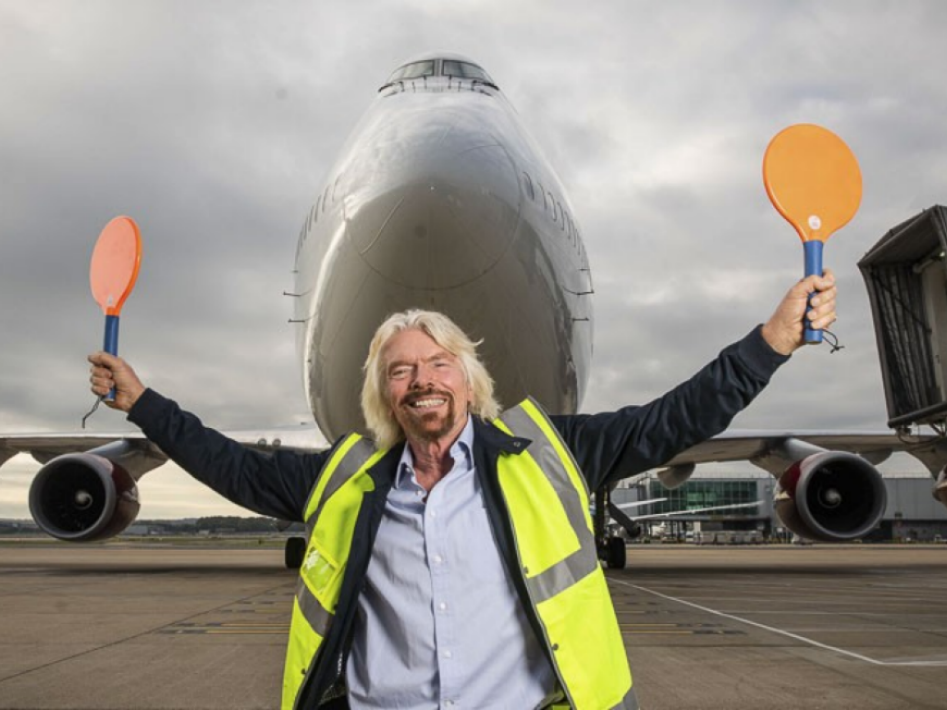Flight100: Virgin Atlantic’s epic journey proves SAF as viable jet fuel replacement
In a groundbreaking achievement for the aviation industry, Virgin Atlantic has successfully completed Flight100, a historic journey from London Heathrow to New York JFK, powered entirely by Sustainable Aviation Fuel (SAF).
The milestone flight, conducted on a Boeing 787 with Rolls-Royce Trent 1000 engines, is a testament to the viability of SAF as a safe and efficient replacement for traditional fossil-derived jet fuel.

This unprecedented accomplishment, marking the first commercial airline flight across the Atlantic fueled exclusively by 100% SAF, was the result of a year-long collaboration led by Virgin Atlantic.
The consortium, which included key partners such as Boeing, Rolls-Royce, Imperial College London, University of Sheffield, ICF, and Rocky Mountain Institute, worked in conjunction with the Department for Transport to make this historic journey possible.
The SAF used in Flight100 is a unique dual blend, consisting of 88% Hydroprocessed Esters and Fatty Acids (HEFA) supplied by AirBP and 12% Synthetic Aromatic Kerosene (SAK) supplied by Virent, a subsidiary of Marathon Petroleum Corporation. Notably, HEFA is derived from waste fats, while SAK is produced from plant sugars, with the remaining plant proteins, oil, and fibres continuing into the food chain. This combination not only demonstrates the versatility of SAF but also contributes to the airline’s commitment to sustainability.
The significance of Flight100 extends beyond its symbolic nature. Shai Weiss, Chief Executive Officer, Virgin Atlantic said:
Flight100 proves that Sustainable Aviation Fuel can be used as a safe, drop-in replacement for fossil-derived jet fuel and it’s the only viable solution for decarbonising long haul aviation. It’s taken radical collaboration to get here and we’re proud to have reached this important milestone, but we need to push further.
There’s simply not enough SAF and it’s clear that in order to reach production at scale, we need to see significantly more investment. This will only happen when regulatory certainty and price support mechanisms, backed by Government, are in place.
Flight100 proves that if you make it, we’ll fly it.
SAF has emerged as a crucial element in the decarbonisation of long-haul aviation, providing CO2 lifecycle emissions savings of up to 70%.
Unlike other technologies such as electric and hydrogen, SAF is available for immediate use.
Sir Richard Branson, Founder, Virgin Atlantic said:
The world will always assume something can’t be done, until you do it. The spirit of innovation is getting out there and trying to prove that we can do things better for everyone’s benefit. Virgin Atlantic has been challenging the status quo and pushing the aviation industry to never settle and do better since 1984. Fast forward nearly 40 years, that pioneering spirit continues to be Virgin Atlantic’s beating heart as it pushes the boundaries from carbon fibre aircraft and fleet upgrades to sustainable fuels. I couldn’t be prouder to be onboard Flight100 today alongside the teams at Virgin Atlantic and our partners, which have been working together to set the flight path for the decarbonisation of long-haul aviation.

Currently representing less than 0.1% of global jet fuel volumes, the success of Flight100 underscores that scaling up production is a matter of policy and investment.
The industry and government have the opportunity to collaborate to foster a thriving UK SAF industry.
Flight100 also serves as a platform to assess the impact of SAF on non-carbon emissions.
Consortium partners, including ICF, Rocky Mountain Institute (RMI), Imperial College London, and the University of Sheffield, will contribute to research that enhances scientific understanding of contrails and particulates, subsequently influencing flight planning processes.
Virgin Atlantic’s commitment to sharing data and research with the industry underscores its dedication to fostering sustainable practices.
Global Travel Management has received accolades for its industry-leading efforts to decarbonise business travel. Scott Pawley, Global Travel Management managing director explained
Our customers tell us that one of the crucial factors that influences their decisions as to when, how and where to travel is the environmental impact. That’s why we launched the GTM Carbon Offset Programme to build an ever-expanding forest of trees to sequester carbon from the atmosphere when customers travel on business.
But I share Sir Richard Branson’s view that we should prove we can do things better for everyone’s benefit. That’s why we at GTM now offset all the carbon emissions from the day-to-day running of the business. Not just our flights and hotels, but our electricity consumption, commuting, power, heating, lighting and even the carbon costs of colleagues working from home.
Transatlantic SAF-only flights are another step in the right direction and I commend Virgin Atlantic for the actions they are taking.
Virgin Atlantic, known for operating one of the youngest and most fuel-efficient fleets, reaffirms its dedication to finding more sustainable ways to fly.
Flight100 builds on the airline’s 15-year track record of leading SAF development at scale.
Looking ahead, the industry and government must intensify efforts to create a UK SAF industry and achieve aviation’s ambitious 10% SAF target by 2030.
This pursuit is expected to contribute significantly to the UK’s economy, with an estimated £1.8 billion in Gross Value Added and the creation of over 10,000 jobs.
As Virgin Atlantic continues to champion sustainable aviation, business travellers are encouraged to reach out to their Global Travel Account Manager for more information on how these advancements impact their future travel experiences.
Simon Burr, Group Director of Engineering, Technology & Safety, Rolls-Royce plc, said:
We are incredibly proud that our Trent 1000 engines are powering the first ever widebody flight using 100% Sustainable Aviation Fuel across the Atlantic. Rolls-Royce has recently completed compatibility testing of 100% SAF on all our in-production civil aero engine types and this is further proof that there are no engine technology barriers to the use of 100% SAF. The flight represents a major milestone for the entire aviation industry in its journey towards net zero carbon emissions.
The successful completion of Flight100 marks a pivotal moment in the journey towards a more sustainable and eco-friendly aviation industry.







